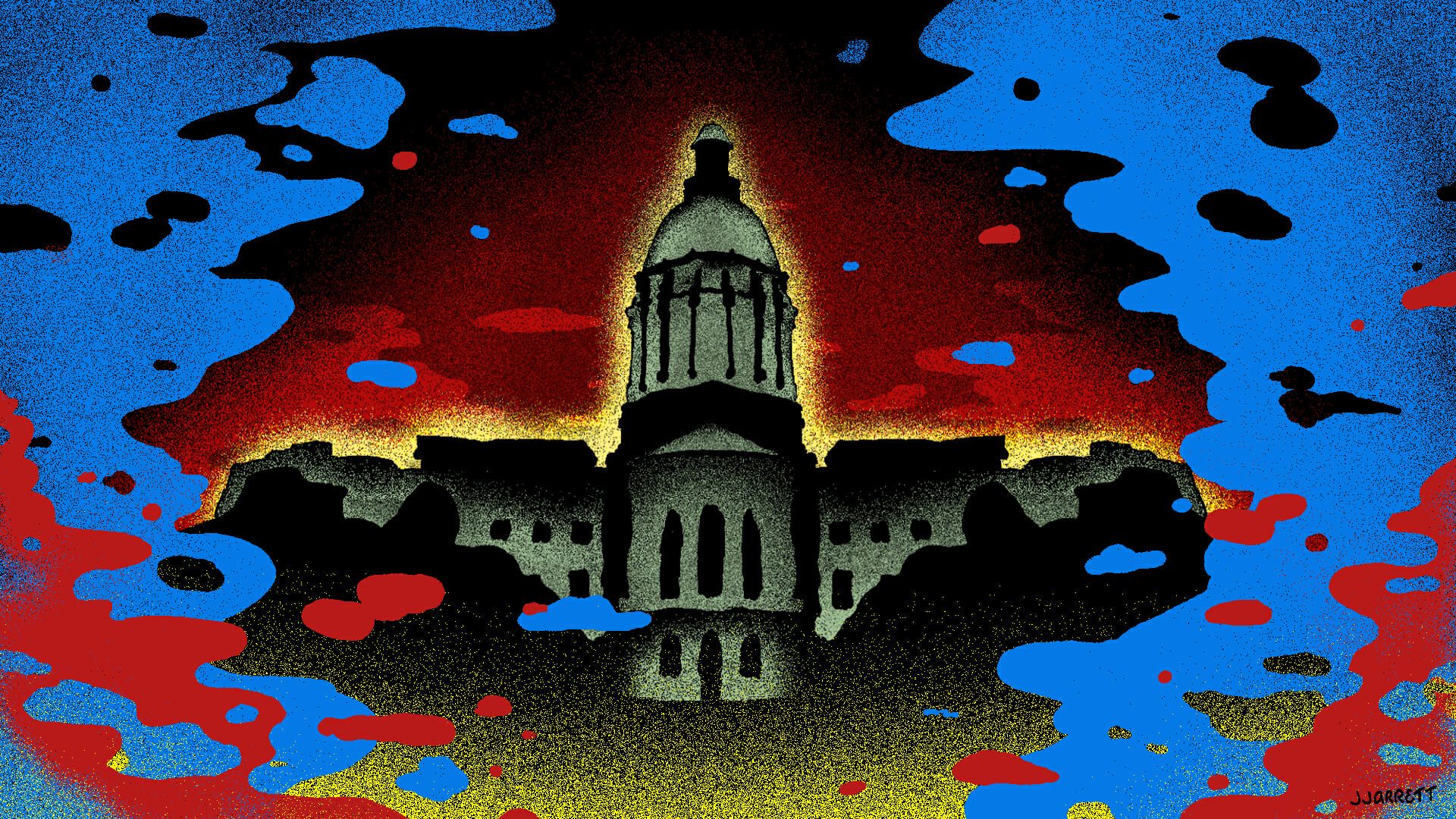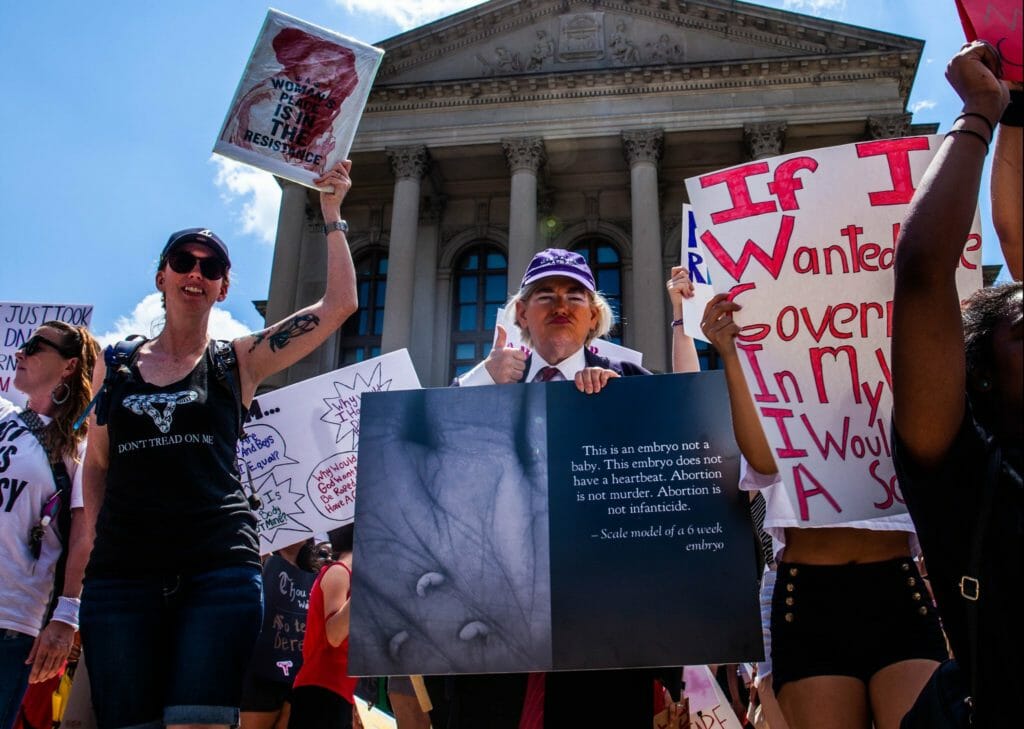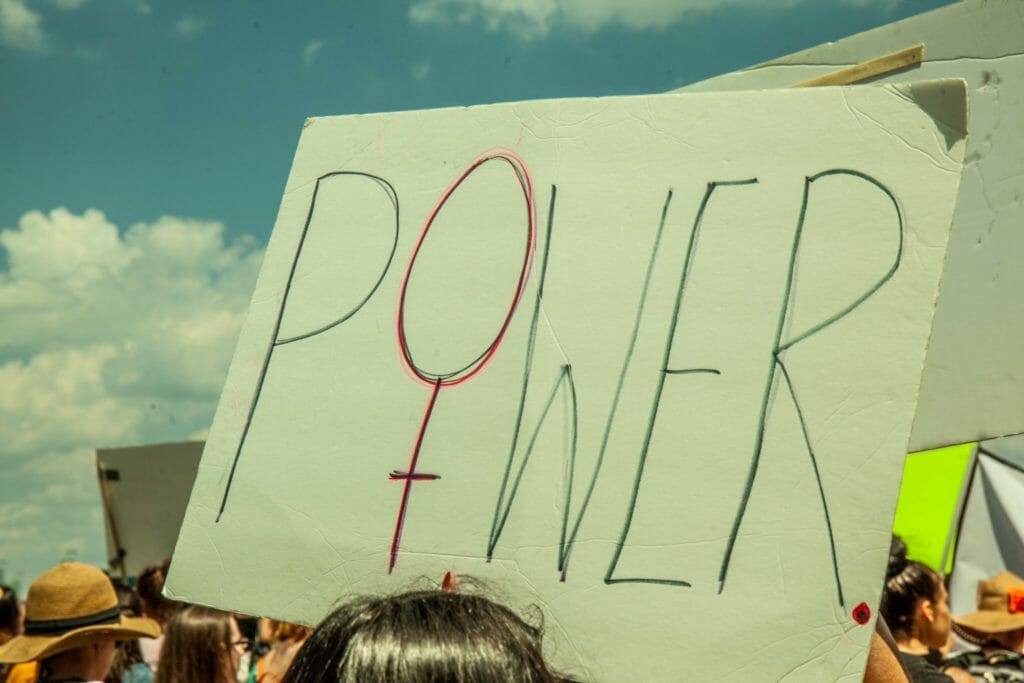
ATLANTA — When Mayor Keisha Lance Bottoms chose to use her veto powers on Ordinance 20-O-1449 in conjunction with a request to file Ordinance 20-O-1492, any legislation to put police reform into law was effectively sank. In simple terms, the Bottoms administration and certain members of the Atlanta City Council, have deemed it unnecessary to push forward legislation that received support through close to 50 hours of phone calls from public listening sessions that have occurred since the start of the George Floyd uprisings in the city.
With regards to 20-O-1449, the proposal would have made 8 Can’t Wait use of force policies into actual law. The Bottoms Administration states that her veto isn’t against the spirit of 8 Can’t Wait police reforms, but to protect reforms from meeting potential legal challenges. Section II, Paragraph III of the Georgia Constitution does state that “the legislative, judicial, and executive powers shall forever remain separate and distinct; and no person discharging the duties of one shall at the same time exercise the functions of either of the others except as herein provided;” and said that Ordinance 20-O-1449 could provide an avenue for a constitutional challenge with regards to the legitimacy of the ordinance.
In Mayor Bottoms’ letter to the City Council, she makes fair claims using two Georgia Supreme Court cases: Perdue v. Baker (2003), and Brown v. Scott (1995) that discusses the separation of powers between the three branches of government in the state of Georgia. To summarize the reason for the veto, the function of law enforcement falls under the executive branch according to municipal code, and the City Council passing what would change the Atlanta Police Department’s standard operating procedure as an ordinance can be challenged as an overstep of legislative powers.
I don’t doubt Mayor Bottoms’ desire to reform the APD, specifically with regards to use of force and compliance with 21st Century Policing procedures like compliance in the use of body cameras. Since June 4, 2020, the Bottoms Administration has issued 11 administrative orders in relation to the APD. What I do doubt is the effectiveness of 21st Century Policing and 8 Can’t Wait policies with regards to keeping BIPOC folx safe from an inherently violent institution. I also have my concern that these administrative orders are done more in the name of gentrification than community safety.
APD already has a use of force continuum in their SOP, and people like Jimmy Atchison and Alexia Christian were still killed at the hands of an APD cop. APD has spent close to $10 million dollars in less-lethals and body cameras in three years and Oscar Cain and Rayshard Brooks were still killed at the hands of an APD cop.
These reforms arrive in the name of Bottoms’ One Atlanta initiative, which has been discussed since 2018. When I read some of the goals for One Atlanta, from thriving neighborhoods, communities, and businesses to world-class employees, infrastructure, and services, I have a hard time divorcing initiatives that sound good on paper from the gentrification that is happening at a rapid pace in Atlanta. The cops are one part of this equation.
For those who hold capital power in the city, cops represent protection and safety. These sentiments were made very clear from a small portion of the public listening sessions when the Rayshard Brooks Bill was put in front of the City Council. To them, doing something radical like “defunding the police” (something the Rayshard Brooks Bill would not do) would lead to not only a decrease in property value, but also would cause businesses to leave the city.
To those that live outside of Buckhead, cops aren’t representative of more safety. Neighborhoods like Edgewood and Peoplestown struggle with their relationship with the APD, and have gone so far as to demand resources from the police be shifted to communities to even protesting the presence of a police precinct being put up in the area. Activists in these neighborhoods have been planting the roots of a world without cops for years now. The abolition of the institution of the police, founded on protecting business and catching runaway slaves, is key to liberation. Cops have terrorized Black, brown, and poor communities while chewing up tax dollars and city resources for far too long. In Atlanta, APD takes up 32% of the General Fund of the city’s proposed FY 2021 budget.
At what point can certain members of City Council and in the Mayor’s Office start to ask themselves why are we increasing this police budget while things like food deserts exist in parts of southwest Atlanta? Instead, what city residents get is copaganda in coordination with gentrifier Tyler Perry to hand out Kroger gift cards to people in the same parts of the city that don’t even have easy access to a Kroger.
The Rayshard Brooks Bill could have been step one towards defunding and a reallocation of resources. While the bill itself was not a “Defund the APD” bill, it could have opened a pathway where the APD’s spending habits could have been analyzed and excess spending and the role of the APD in communities could have been properly considered. The bill even protected the precious raises promised to the cops, because the city still needs to take care of those who call in sick when one of their own is held accountable and then being caught on the police scanners make jokes about a man who was murdered by an officer of their department while admitting to having to Google city ordinances so they can disrupt protests that Governor’s mansion.
Unfortunately, Mayor Bottoms and select members of the City Council kneecapped the resolution in an incredibly petty display of city governance. What was witnessed was a middle finger to a lot of organizers, activists, and city residents, or in the words of Councilmember Cleta Winslow, “people on the internet.”
Mayor Bottoms’ memo to the City Council uses COVID-19 as a means to call the Rayshard Brooks Bill “fiscally irresponsible.” While the memo acknowledges that salaries would be protected, it states that due to COVID-19 leaving economic uncertainty when it comes to city revenue, which can lead to APD operations and service delivery to be negatively impacted by the proposed ordinance. These anticipated impacts include:
- Operation and maintenance of APD vehicles
- Purchase, maintenance and digital storage of body cameras
- APD’s ability to purchase and install and maintain new cameras to add to the network of 10,000 cameras in the city
What’s frustrating about this is it raises so many questions regarding how much cash APD chews up. How much does it really cost to operate and maintain APD vehicles? Is the maintenance of vehicles really chewing up so much money for the APD that they can’t live without a car budget for five months? The department already spent $8 million in FY2019 and FY2020 on vehicle expenses above $5,000 across four different vendors; what more can they possibly want? Meanwhile, the department spends millions on its body camera program while simultaneously charging citizens $4,800 for access to the footage. As far as the surveillance cameras go, why does this city need more cameras for the police when we’re already at 15.6 cameras per 1,000 residents, especially when these cameras are also receiving private funding from the Atlanta Police Foundation?
The Bottoms administration then proceeds to pat itself on the back in this memo by citing the elimination of cash bail, something that hasn’t actually happened in the city, and the increase in funding to the Atlanta Citizen Review Board. To claim in the memo that the actions the executive branch of Atlanta has done is only a start and not the end goal, while asking for legislation that received such support in public listening sessions to simply be filled feels like the demands of the people are not being considered by certain city officials. To then use a pandemic to say that departments need PPE when cops couldn’t even bother to wear a mask during almost every protest is another slap in the face.
What we’re seeing now is an environment where the peaceful way of presenting community demands to legislators feels closed off by city officials. Even the act of compromising for measures that might not even be effective was met with condescension and roadblocks. In the midst of one of the largest uprisings in American history with the police at the spotlight for systemic change, resistance was met in Atlanta whether in the form of Councilmember J.P. Matzigkeit limiting the time the public can voice their needs to the council because Councilmember Howard Shook was just getting so darn cranky having to listen to people. Or Mayor Bottoms using the murder of Secoriea Turner as an excuse to tear down the Rayshard Brooks Peace Center and place blame on protestors for the rise in gun violence; as well as berate protestors in a press conference while waiting for her COVID-19 test results to come in. At every turn, city officials have tried to discredit this movement. I believe it is time to remind them that it is not going away, and if they aren’t with us, then they can go find a job somewhere else. Because either the people flood their representatives until demands are met by any means necessary, or we vote them out.




